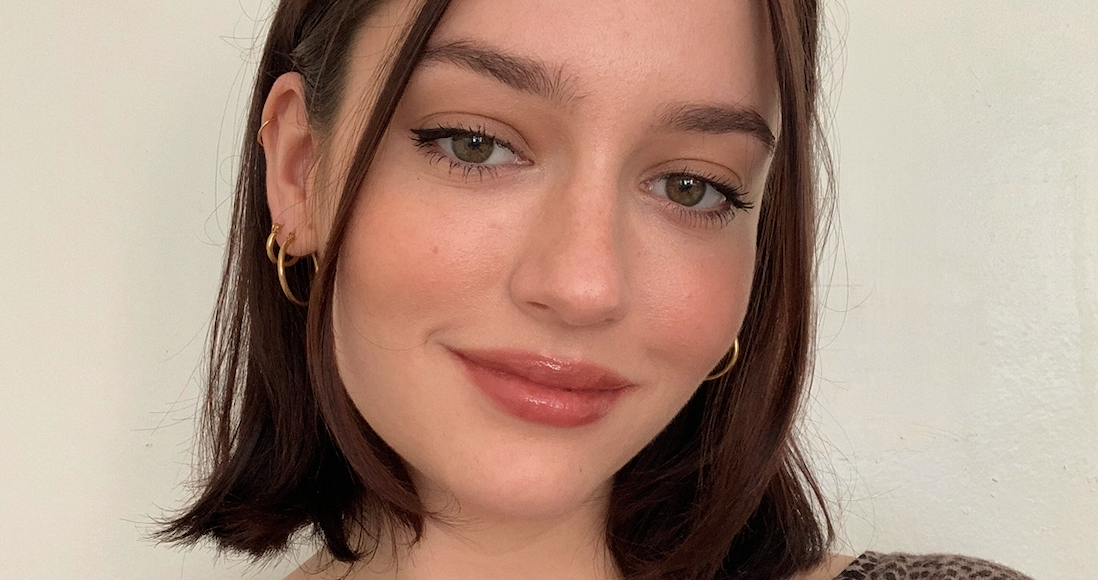Ivan Tereshchuk is director of the Odessa branch of LiGa, one of the few remaining LGBTQ+ advocacy groups physically operating in a threatened area of Ukraine. He chats via Facebook from his hometown of Odessa, the nation’s second largest municipality, which has been repeatedly targeted by Russian drones and left without power in recent weeks.
“Why did I start doing this? The answer is simple,” Tereshchuk writes, translated into English. “Because it concerns me. As a gay man, as an HIV-positive man, as a boy who had been bullied, I couldn’t stay away any longer.” Since joining as a volunteer in 2015, Tereshchuk’s career with LiGa has spanned work within HIV service projects, public relations and local advocacy, before he became director of the organization’s Odessa branch.
As the active invasion of Ukraine by Russia drags into its 8th month, Tereshchuk describes his lifelong experience incurring verbal harassment, beatings, theft and discrimination on the base of his sexuality.
“Usually, the majority considers Odessa to be the most tolerant city in Ukraine – this perception is related to the cultural diversity of the city’s history,” Tereshchuk explained. “However, in practice this is not the case at all. Pro-Russian narratives are common among local residents… They always go hand in hand with homophobia.”
Russia’s anti-LGBTQ+ policies are extensive and well documented. From the explicit denial of same-sex marriage in 2020 to the newly-expanded ban on “LGBT propaganda,” which has extended into bans on media for all ages that has been identified as promoting queer relationships, Russia’s exclusionary treatment of queer people has drawn contention from the UN and other global human rights organizations for decades.
Though support of LGBTQ+ rights is trending progressively in Ukraine, formal discussions surrounding queer-affirming policies have been shuttered during the active invasion.
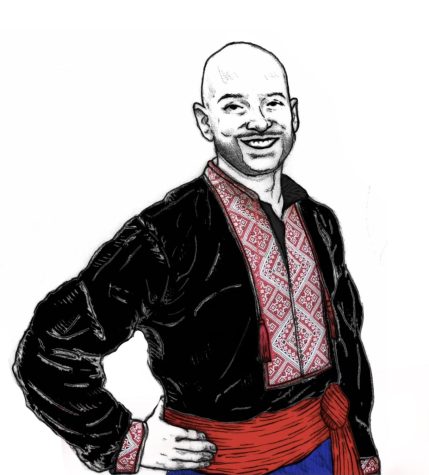
After Russian tanks first rolled onto Ukrainian soil at the tail end of February, Odessa-born San Franciscan, Leo Volobrynskyy, would wear traditional Ukrainian garb every weekend to rallies and events in the Bay Area, representing his home country and raising funds for humanitarian aid. Volobrynskyy estimates that he raised over $20,000 for various Ukrainian organizations as of September 2022.
Volobrynksyy described the early days of the invasion as he lived them; watching the war in his country unfold from afar, conveyed through the shared experiences of those he knew. The weight of survivor’s guilt grew until the point it became “catatonic,” before he began organizing for relief.
“Eventually comes acceptance and an attempt to balance your life with whatever you can do to help. Without, you know, destroying your own life entirely and putting it on hold.” He said, alluding to a conversation with an Ethiopian colleague, whose country recently negotiated a peace after two years of civil war.
Varied reports have emerged about limited access to aid and safety zones for LGBTQ+ Ukrainians during wartime, particularly housing, healthcare, and accounts of discriminatory treatment and refusal of travel at the border for transgender women and non-binary people.
“No one’s necessarily looking out to shoot you or jail you like they do in Russia, but that doesn’t mean that there is help or that there is support,” Volobrynskyy said about the social climate for queer individuals in Ukraine.
For gender non-conforming people and transgender women in particular, the war has further muddled routes to safety, said Volobrynskyy. “Immigration is very challenging, especially for transgender women, because according to your documents you are male and in Ukrainian state of war as a [legal] male of a certain age, you are required to serve. And it’s not that transgender people wouldn’t want to serve, but it is dangerous.”
[pullquote speaker=”Leo Volobrynskyy” photo=”” align=”center” background=”on” background_color=”” border=”all” border_color=”#888888″ border_size=”1px” shadow=”on”]No one’s necessarily looking out to shoot you or jail you like they do in Russia, but that doesn’t mean that there is help or that there is support.[/pullquote]
On February 24, 2022, President Volodymyr Zelenskyy imposed a state of martial law in Ukraine, which closed the border to men aged 18 to 60 – and those labeled as male on their legal documents – to stay and repel the invasion as part of the civil defense force. For transgender and gender non-conforming Ukrainians who were still labeled as male on legal documents, this continues to pose a unique challenge in finding safety and avoid being questioned.
LGBTQ+ POLICY IN UKRAINE
Though no data is available that represents the number of people who self-identify as gay, lesbian and/or transgender in Ukraine, an active network of LGBTQ+ organizations has been representing the community for decades. Among them are LiGa, Insight and Kyiv Pride – considered the largest pre-invasion organizations that drive for acceptance and supportive policy, funded entirely through non-government donations.
As of 2022, homosexuality is not illegal in Ukraine, though there is no legal provision for same-sex marriage. According to data from the European Region of the International Lesbian, Gay, Bisexual, Trans and Intersex Association, Ukraine is ranked 39th out of 41 European countries in treatment of LGBTQ+ people.
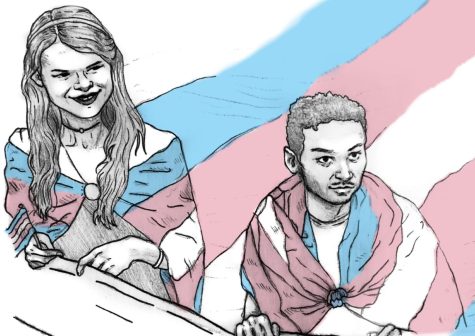
Although the requirement for sterilization was dropped in 2016, for transgender people, the process of acquiring gender affirmation on any legal documentation is a long and laborious one. Some hurdles standing in the way of a corrected gender marker include physical and psychiatric evaluations, x-ray and genetic testing, and an inpatient psychiatric evaluation period of 30-45 days to receive the diagnosis of “transexualism” from a specialized sexologist. With a diagnosis in hand, patients are then able to receive hormone replacement therapy (HRT) and legal gender corrections.
Due to the complexity and dehumanization of the process that could draw on for years, many transgender Ukrainians forego the process and start costly (and unregulated) grey market HRT independent of doctor referrals, and live with inconsistent gender markers in their legal documentation.
“You can easily just go to a clinic, you can go to a private clinic, but for that you have to have money.” Maryna Shevtsova, PhD., a Ukrainian human rights activist, economist, and political scientist explained in an interview.
In 2021, the average monthly salary in Ukraine was 14,014 Ukrainian hryvnia a month, which equates to about $379 USD. According to Shevtsova, purchasing a month’s worth of hormone replacement therapy in Ukraine, on average, costs about $200 USD.
For HIV positive people in Ukraine, access to necessary treatment such as antiretroviral therapy (ART) has grown increasingly difficult as specialized centers have been shaken by bombings in major cities. For those who can secure an appointment in remaining treatment centers, Shevtsova said, finding transportation to reach clinics comes with its own set of safety hazards.
In 2013, a poll conducted by Pew Research Center revealed that only 28% of polled Ukrainains agreed strongly that gay men and lesbians should be allowed to live how they wish. This year, a separate study by the Kyiv International Institute of Sociology found that support had more than doubled, and 63% of Ukrainians supported full equality for their LGBTQ+ neighbors.
In an interview, Shevtsova spoke of the significance of Ukraine’s acceptance of Western values, like LGBTQ+ acceptance, in efforts to distance itself from Russia’s highly conservative policy: “Being more inclusive, more open minded, thinking about equality is something that means you’re not like Russia.” Shevtsova said. “This is interesting how indicating for Ukraine, it might become a part of a new national identity, but we’ll see. I mean, I’m carefully optimistic.”
As part of her visiting tenure at the University of Ljubljana, Shevtsova was living in Slovenia when the full-scale invasion began, but stated members of her family remain in Ukraine. Her work at The European Association for Gender Research, Education and Documentation and her nonprofit organization, Equal Opportunities Platform, continues from afar.
In July of this year, Ukraine and Moldova both became official candidates for membership within the European Union. Acceptance into the EU would allow Ukraine benefits of, among other things, citizenship and mobility for Ukrainians without visas, and economic integration with much of Europe. As Ukraine moves to align with the EU’s “Copenhagen criteria” or aligning values – one of which being the full recognition of same-sex marriages and partnerships – national politics are shifting along with the public increase in queer acceptance.
A petition in support of same-sex marriage circulated in June and garnered 28,592 signatures out of the 25,000 required for presidential recognition. The petition, bearing the phrase “At this time, every day can be the last,” called on the UA government to allow military spousal rights for recovery of same-sex partners’ bodies from the morgue, along with burial rights.
At a news conference in July, President Zelensky addressed the call to action, asking his government to examine legislation options for same-sex marriage and floating the option of rights granted through same-sex civil partnerships.
A new round of progressive policy for LGBTQ+ protections, including the realization of said same-sex civil partnerships and criminalization of LGBTQ+ hate crimes, is included in the drafted Action Plan on Human Rights, the LGBT Human Rights Nash Svit Center reports. However, many of these provisions are set to expire between December 2022 and June-December 2023 if they’re not passed.
“When homophobia happens, and [non-governmental organizers] try to seek the help of authorities, the response is very painful. The general sort of mood of response is: ‘Is this really a priority right now? We are under attack by Russia. We have a bigger fish to fry.’” Volobrynskyy said about the legislative reception of LGBTQ+ policy. “On one hand, this is difficult to argue with, because we are in a war and there is a sense of bonding and sort of prioritizing issues. But on the other hand, this is not the right reaction, this is not the right answer. Because people are struggling and people are being mistreated.”
According to an August 2022 report, the human rights monitoring capacities at Nash Svit Center identified 64 documented cases of actions based in homophobia, transphobia and other LGBTQ+ discrimination, both within Ukraine and abroad toward displaced Ukrainian citizens. 37 of these documented events constitute hate crimes, 23 as hate incidents, and one as hate speech. Nine of these cases were carried out by Russian invaders in occupied areas – the majority of which can be characterized as war crimes – Nash Svit Center alleges.
“This whole idea that homophobia is a Russian import, that you know, homophobia is not a Ukrainian value, that’s been kind of a prominent thing,” Emily Channell-Justice, Director of the Temerty Contemporary Ukraine Program at Harvard University’s Ukrainian Research Institute, spoke to conflicts in LGBTQ+ acceptance in Ukraine. “‘We have European values, but like, don’t hold hands with your partner walking down the street.’ That the Pride parades are gonna be fine, but like on an individual basis, not always fine.”
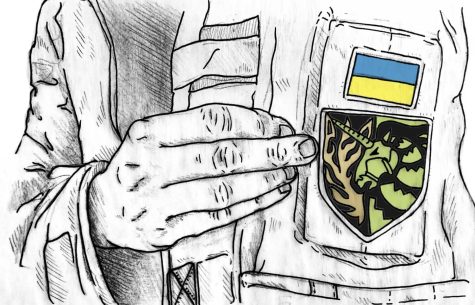
Many members of the LGBTQ+ community in Ukraine maintain activism through volunteering with organizations that have not been displaced from the country, or have voluntarily joined the fight against the invasion on the front lines.
Since the beginning of the war by Russia’s annexation of the Crimean Peninsula in 2014, Ukrainian volunteer soldiers identifying outwardly as LGBTQ+ have donned a patch with a unicorn insignia, positioned beneath the Ukrainian flag’s patch on their arm, to visibly display their queer pride alongside their patriotism.
Vlad Maslov, a video journalist and producer with Fixers UA, has over 25 years of experience doing what a fixer does: shepherding international reporters through the complexities and nuances of reporting in a foreign country, arranging assistance, and providing resources.
In September, Maslov collaborated with American novelist and journalist Zarina Zabrisky to create EBT News, an independent news outlet that publishes videos regularly on YouTube. Both had grown frustrated with the limitations of proper war correspondence from global news organizations, as well as the lack of nuance and use of euphemisms to describe the war in major publications.
Stereotypes saturated global coverage, and terms like “tragedy” and “conflict” peppered the news Zabrisky read, along with the dreaded and damaging slip: “The Ukraine.”
“Why is it wrong? Because that suggests in a linguistic way, that Ukraine is not an independent country. Because usually, you know, unless it’s The Netherlands… unless it’s an abbreviation like The United States, Russia is Russia or Sweden is Sweden, you don’t say ‘The Sweden’.” Zabrisky elaborated. “And so without even knowing it, these little switches really work wonders for the brain.”
EBT News features raw, on-the-ground footage of the war unfolding in areas many global news outlets do not have access to, as Zabrisky explained, combined with nuances of Ukrainian residents. A long-running project of Zabrisky’s creation is “Breaking Stereotypes,” a video explainer saga that counters and contextualizes some popular narratives in outside coverage of the war in Ukraine.
“We perceive EBT News is reporting a big story through small stories, through details.” Zabrisky said.
One interview features Sarah Ashton-Cirillo, a freelance war reporter from Las Vegas, Nev., whose news coverage features the Russia-Ukraine war as well as LGBTQ+ issues. In October of 2022, when the video was recorded, she had been living in the Kharkiv region of Ukraine for seven months, but had been reporting on refugees in Poland before that.
Ashton-Cirillo, who is transgender, detailed her experience of being ushered in at the border with her credentials, and working as a war correspondent in active areas, without incident. “It’s almost as though gender transition, and how it played into my life, only mattered outside of Ukraine. To the people of Ukraine, it was a non-issue, to the point of almost being strange, at first.” Ashton-Cirillo said in the video interview with EBT News. “Until I realized that everyone was solely focused on the fight for liberty and democracy, and the efforts to drive out the Russian invaders.”
Amid the tumultuous legislative landscape for a country at war, Ukrainian contributors to this project advocate against outside observers developing black-and-white perspective toward the developing situation in their nation, especially for those approaching the subject from the lens of Western experience.
“Ukrainians have been always very open to Western experience, but at the same time we are Slavs and we have an enormous culture behind us, and there is a lot of respect for that and there’s an ongoing attempt to understand your cultural identity, your cultural past, and most importantly, your cultural future,” Volobrynskyy said. “So Ukraine has always been stuck between its acceptance and its curiosity of Western experience, and its deep ties and roots in the Asian/Slavic way of life and worldview.”
Maslov elaborated on the shared vein between Russia and Ukraine as former components of the Soviet Union, both in parallels of cultural development and wartime strategy: “It’s the very first war in the history of the world when both armies used the same textbooks.” Zabrisky translated. “Both Ukrainian military commanding officers and Russian officers attended the same schools and had the same curriculum because it used to be the same country.”
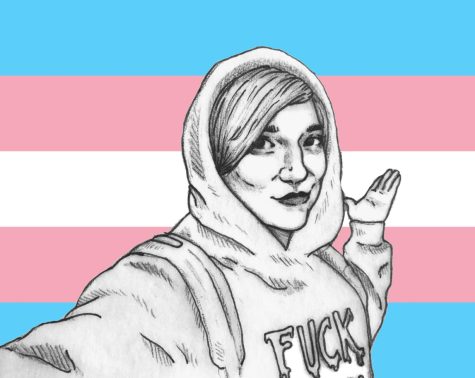
BEYOND THE BORDER
For LGBTQ+ Ukrainians who have evacuated beyond the border, there is no guarantee of a warm welcome, consistent protections, or necessary healthcare. Poland and Romania, which are among the most receptive countries of Ukrainian refugees outside of the Russian Federation thus far (in terms of scale), are both known for widespread anti-LGBTQ+ policy.
As of November 2022, over 7.6 million Ukrainian refugees have been registered across Europe, the majority having evacuated through the Polish border. According to UNHCR research, over 1.5 million Ukrainians have remained in Poland since the start of the invasion, made possible largely through Poland’s bolstered Temporary Protection Directive.
In early March, while hundreds of thousands were attempting to cross the border to neighboring countries, several groups of Black students were reportedly held up by border control agents after reaching the end of a nine-hour queue to enter Poland, and others were refused to board evacuating trains.
The alleged discrimination raised the concern of other minority populations of Ukraine, although less visible, also facing differential treatment by their host countries. The Guardian reported the story of several transgender Ukrainians turned back at the border, even though they had proper documentation and were not legally restricted by martial law. However, documentation or data cataloging similar occurrences of border discrimination is rare.
“[LGBTQ+ discrimination] needs to be documented at the border. So think about it, if the biases against people of color who were fleeing Ukraine were not documented at the border at the time, we wouldn’t have understood the intersection of race and displacement in that context. So the question is, can we document what is happening to LGBTQ communities?” Professor Burcu Ellis, chair of the International Relations department at San Francisco State University, said.
“A lot of people, I think, have had to go underground, back in the closet to protect themselves,” Jefferey Cotter, founder of San Francisco-based LGBTQ+ organization Rainbow World Fund, said about LGBTQ+ safety in potentially hostile areas. “And then a lot of refugees situations, those can be very volatile, you know, for women, homosexuals, you know, so it can be really really tough on all kinds of different levels.”
Poland, Shevtsova explained, despite its anti-LGBTQ+ policy and LGBT-free zones, has a strong and organized community of LGBTQ+ activists and supportive non-governmental organizations. In anticipation of LGBTQ+ resources for incoming refugees, the Polish and Romanian chapters of The UN Refugee Agency’s websites contain a help line and masterlist for LGBTQ+ resources for Ukrainians. The UNHCR of Poland declined to comment on the implementation and use of these resources.
All EU Member States, as well as countries, have institutionalized temporary protection systems for support and refugee assistance. However, being ‘temporary,’ these structures are delicate and prone to collapsing if not regularly revisited, Ellis said.
Data from the United Nations Refugee Agency (UNHCR) shows that among the 7.8 million Ukrainians currently displaced outside of the country, over 4.7 million are currently registered under temporary protection schemes in Europe.
In the U.S., the Uniting for Ukraine program offered to welcome up to 100,000 displaced Ukrainians under temporary protections after the state reported 20,000 Ukrainians attempted to enter through the U.S.-Mexico border.
Humanitarian parole grants limited and temporary protections, though many globally displaced people awaiting visas criticize the U.S. for prioritizing Ukrainians through bypassing the lengthy immigration process for other applicants. Comparatively, the Refugee/Asylee Relative Petition processing time for those not granted humanitarian parole averages a processing time of 28.6 months.
“So we are right now, we made an exception on top of an exception for Ukraine.” Ellis explained, referencing Uniting for Ukraine, which grants a two-year humanitarian parole period for displaced Ukrainians in the U.S. “But [the gains against Russia] also gives the sense to countries that they can see this as a temporary protection… and let them come back once the war is over. But we’re not sure what there will be for these refugees to come back to once the war is over.”
In a March 4 panel hosted by the SF State Department of Political Science entitled The War in Ukraine in Context, Prof. Scott Siegel of SF State’s International Relations Department, along with Ellis, noted the global precedent for host nations’ “compassion fatigue” for refugee populations as time goes on, as exemplified by the backlash to Syrian and Bosnian refugees after an initially warm reception.
As The New York Times reports, many Ukrainians who have remained in Poland have experienced an increase in apathy from residents of the host county as time has gone on, or have experienced precarious job situations or housing as outsider sentiments sour toward refugees.
WARTIME EXACERBATES VULNERABILITY
In a 2022 journal publication entitled Choosing to stay? Lesbian, gay, bisexual, trans and queer people and the war in Ukraine, Shevtsova discusses that not only does wartime endanger members of involved nations, but in periods of post-war rebuilding, many marginalized populations therein become even more vulnerable to discrimination, scapegoating, and physical and sexual violence.
“Whoever was in a vulnerable position now is in a double or triple vulnerable position, depending on where people are.” Shevtsova said in an interview.
Ellis echoed concerns for vulnerable populations in the post-war period, particularly those who also face gender bias, or other race, sexuality, ability or other identity facets that are often discriminated against.
“And of course, the geographical location really, really, really matters.” Shevstova said, referring to the rise in stigmatization of the over 6.4 million internally displaced people in the country, many from Eastern Ukraine, and the areas that were first evacuated when the heavy bombings began in late Feburary. Many of these regions were populated with the country’s minority of native Russian-speakers.
[pullquote speaker=”Maria Shevtsova” photo=”” align=”center” background=”on” background_color=”” border=”all” border_color=”#888888″ border_size=”1px” shadow=”on”]Whoever was in a vulnerable position now is in a double or triple vulnerable position, depending on where people are.[/pullquote]
“So unfortunately in Ukraine now, not everybody is happy about internally displaced people [IDPs] coming to their regions, because there are a lot of stereotypes. Some people connect them to like, they think that these people have more like a Russian mentality.” Shevtsova said.
Additionally, displaced Eastern Ukrainians face denials of access to housing, healthcare, and more essentials connected to their regional registration, which is in itself a long and complicated process to amend. Many of the LGBTQ+ organizations that remain in Ukraine, with the assistance of international partnerships, have focused their efforts on extending services to internally-displaced community members.
“Everything’s very transient now,” Cotter said about the international effort to support the needs of impacted communities. “And that you know, it’s not just a shelter… that’s not just providing a space for someone to be in. It’s also providing what their humanitarian needs are right then.”
However, as the Ukrainian government is not in support of the LGBTQ+ community, these organizations rely solely on foreign and independent donations to function, which can lead to underfunding and competition between organizations.
“I think it’s one of the biggest issues and challenges that [NGOs] have been facing for years and now especially in the times of war, that it’s very difficult to have this healthy cooperation without equal, fair… distribution of resources,” Shevstova said.
The ongoing war situation remains fluid and ever-changing, with the bulk of Ukraine’s Eastern regions hotly contested by Russia some eight months after the invasion began. Hope charges the efforts of NGOs, journalists and individuals on the ground, as well as signs of further acceptance and progress in Ukraine’s future.
[pullquote speaker=”Zarina Zabrisky” photo=”” align=”center” background=”on” background_color=”” border=”all” border_color=”#888888″ border_size=”1px” shadow=”on”]People, in my experience… take you based on your fight and merit. If you fight for Ukraine, other details do not matter.[/pullquote]
Tereshchuk remarked on the growing acceptance of LGBTQ+ terminology and acceptance in the mainstream media, citing that “outright hate speech is almost non-existent” without any hate speech laws in effect. Those that do engage in anti-LGBTQ+ rhetoric in the media, Tereshchuk said, often receive reputational scars because of it.
Tereshchuk also noted that, for many Ukrainians displaced beyond the country’s borders, their nationality and need supersedes other aspects of identity in the eyes of welcoming nations, echoing Ashton-Cirillo’s interview with EBT News.
“I think part of it is the war situation, because all the other details of your identity politics that might’ve been important before fade away next to the reality of the war,” Zabrisky said. “People, in my experience… take you based on your fight and merit. If you fight for Ukraine, other details do not matter.”






